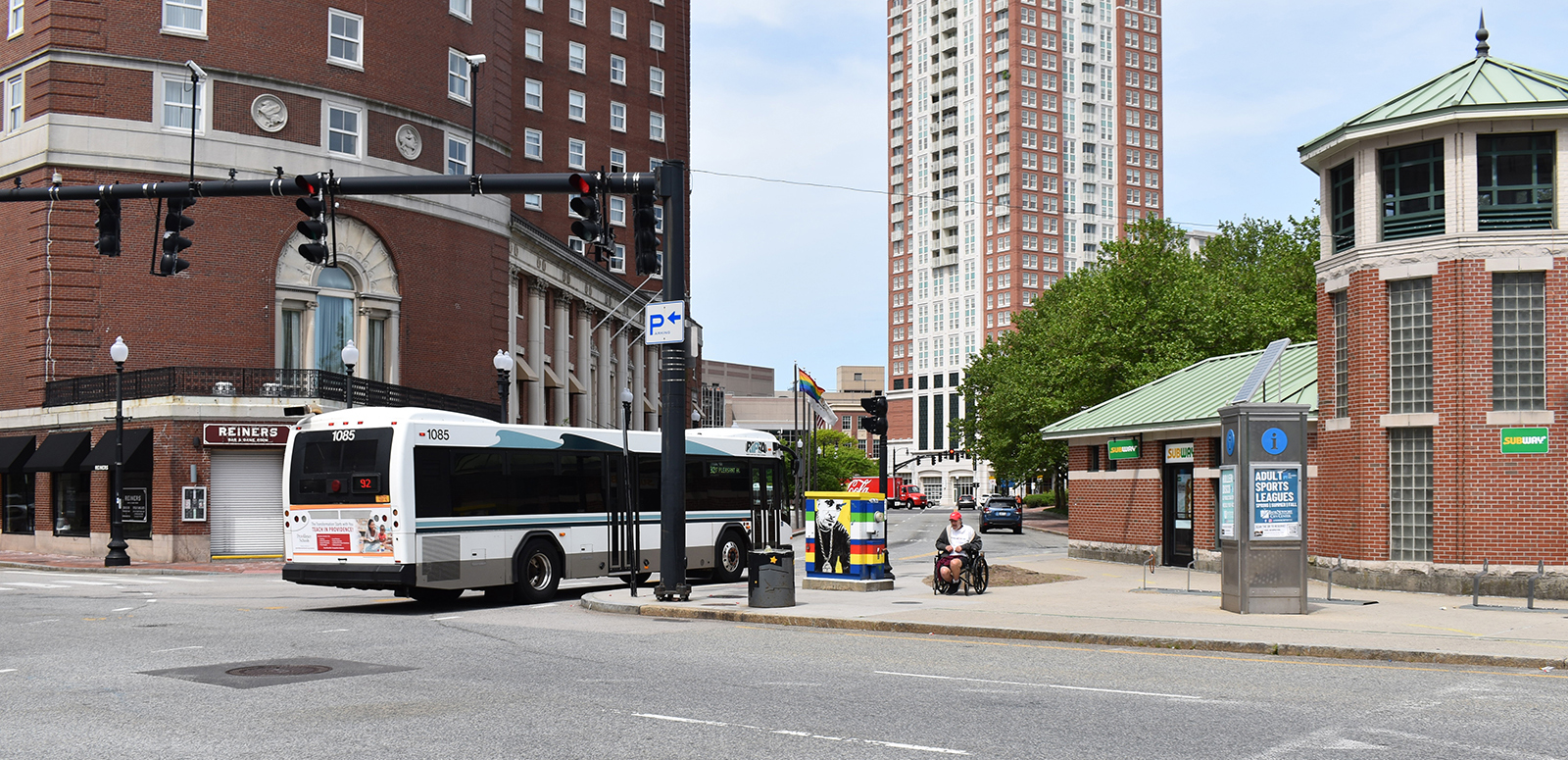Statewide Ban On Plastic Bags and Polystyrene is a Slog
April 2, 2018
PROVIDENCE — The forces working for and against a statewide ban on plastic retail bags and polystyrene containers clashed during a recent House committee hearing. Like past efforts, elected officials expressed their interest in a ban but lacked a consensus for passing a bill.
Rep. Robert Lancia, R-Cranston, got into a testy exchange with Rep. Katherine Kazarian, D-East Providence, about a provision of the bill (H7851) that allows municipalities to opt out of the dual bans.
Kazarian said a uniform statewide ban helps businesses by creating a single rule that applies to all communities. Lancia argued that not having a ban makes a community more enticing to businesses. Cranston, which has a large retail sector and no bag ban, is thriving, Lancia noted. Kazarian responded that the hearing was not a forum for arguing which communities are better than others. Lancia left the hearing room moments later.
Barry Schiller of the North Providence Environmental Commission gave a compelling argument for the ban. He noted that low-income groups benefit from a fee on bags because it lowers the cost of goods.
“Don’t assume that low-income people don’t care about the environment. A lot of low-income people that I have met understand that they are in It with everybody else for protecting our oceans, our fishing, our economy.” Barry Schiller
Financial incentives are necessary for the bans to work in a capitalist society, Schiller said. But with a few exceptions, stores don’t offer discounts for reusable bags or charge for bags they offer to customers. During the years he has followed plastic bag recycling efforts, nothing has made a difference. But, Schiller said, “I don’t think it’s acceptable to do nothing.”
It’s unacceptable to let lawmakers give in to the plastic industry year after year, he said. “That’s not what we want to see happen.”
The bill was opposed by local business groups such as the Rhode Island Retail Federation. DJ Orr of Shell gas stations with the Seasons Corner Markets said a bag ban would put added stress on retail clerks and chain stores like his. It limits customer choice and places a regressive cost on low-income consumers, he claimed.
“It’s people behind the register that have to deal with the repercussion of the discontent of having to deal with paper as opposed to plastic,” Orr said.
Business and industry groups such as the American Chemistry Council (ACC) also spoke against the bill. The ACC, whose clients include ExxonMobil, Shell, Dow and DuPont, opposes local, state, national and international efforts to ban plastic bags and supports state preemption laws that prevent municipalities from passing bag bans. Nine states have passed preemption laws.
At the March 29 hearing, Joan Milas of the ACC said there is no benefit to banning polystyrene containers such as foam coffee cups and clamshell to-go containers. She failed to mention styrene, the primary ingredient polystyrene, is classified as a possible carcinogen by the Environmental Protection Agency. Chemicals in polystyrene are also known to leach into food and beverages.
Paul Poe of Dart Container, the maker of Solo cups, opposed the ban on foam containers and noted that his company collects polystyrene at the Rhode Island Resource Recovery Corporation in Johnston.
Bans on Styrofoam are increasing across the country. New York City and Washington, D.C., have banned polystyrene containers, as have seven communities in Massachusetts.
Save The Bay, the Audubon Society of Rhode island and the Conservation Law Foundation support the bill. Jonathan Berard of Clean Water Action Rhode Island said a bag ban isn’t about paper vs. plastic, but an effort to get consumers to shop with reusable bags. He handed out jars with water from Narragansett Bay containing foam pieces and other plastic debris.
“If we keep generating more and more waste, especially waste that never breaks down, never biodegrades, we are going to run out of space (at the landfill) really quickly,” Berard said.
States with bag bans include California and Hawaii. In Rhode Island, Barrington, Block Island, Bristol, Jamestown, Middletown, Newport and Portsmouth have banned plastic shopping bags. Providence is poised to enact a bag ban, but is debating a mandatory 10-cent fee on alternative bags.
A Senate bill (S2354) sponsored by Sen. Joshua Miller, D-Cranston, has yet to hold a hearing.
Categories
Join the Discussion
View CommentsRecent Comments
Leave a Reply
Your support keeps our reporters on the environmental beat.
Reader support is at the core of our nonprofit news model. Together, we can keep the environment in the headlines.
We use cookies to improve your experience and deliver personalized content. View Cookie Settings




I’m proud to have Katherine Kazarian as my representative. Rhode Island is a small state. It is foolish to offer cities and towns to opt out.
Plastics bags and polystyrene should have been banned years ago!